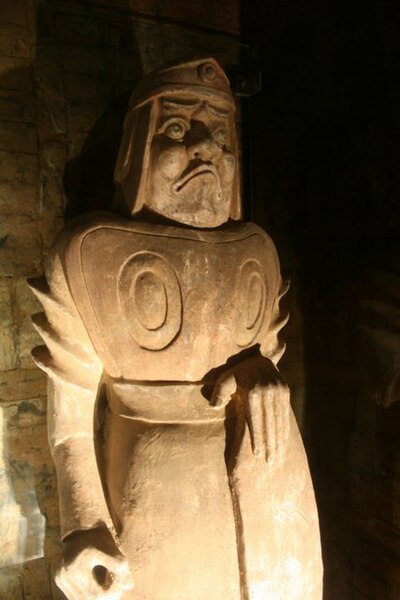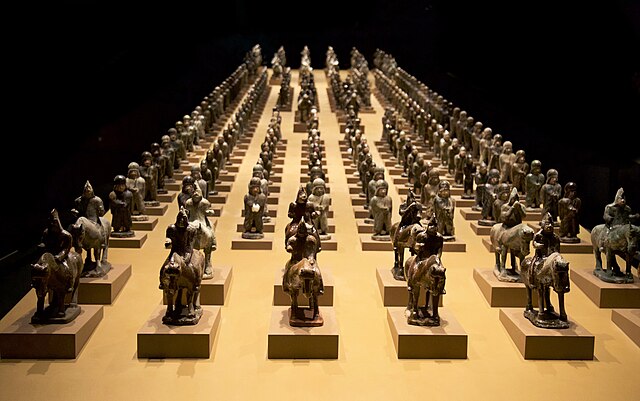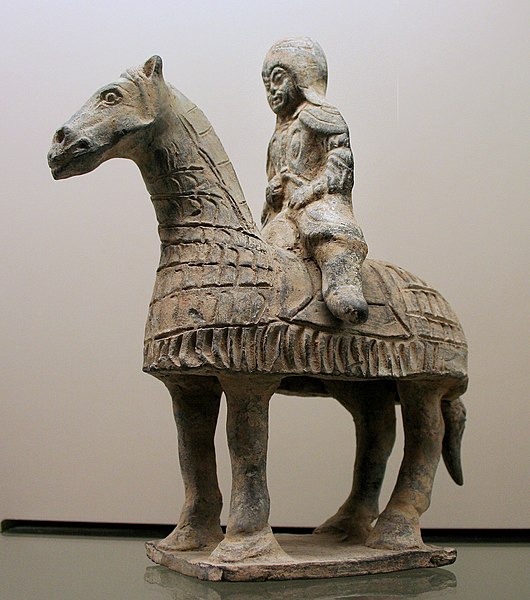Emperor Xuanwu of Northern Wei
Emperor Xuanwu of Northern Wei was an emperor of the Xianbei-led Chinese Northern Wei dynasty (499-515). He was born Tuoba Ke, but later changed his surname so that he became Yuan Ke. During Emperor Xuanwu's reign, Northern Wei appeared, outwardly, to be at its prime, but there was much political infighting and corruption, particularly by Emperor Xuanwu's uncle Gao Zhao.
A stone-carved tomb statue with sword standing guard outside the Luoyang tomb of Emperor Xuanwu
A stone-carved tomb guardian standing within the Luoyang tomb of Emperor Xuanwu
A vaulted chamber leading into the final coffin chamber of Emperor Xuanwu's tomb at Luoyang
The coffin and resting place of Emperor Xuanwu at his tomb in Luoyang
Wei, known in historiography as the Northern Wei, Tuoba Wei, Yuan Wei and Later Wei, was an imperial dynasty of China ruled by the Tuoba (Tabgach) clan of the Xianbei. The first of the Northern dynasties, it ruled northern China from 386 to 535 during the period of the Northern and Southern dynasties. Described as "part of an era of political turbulence and intense social and cultural change", the Northern Wei dynasty is particularly noted for unifying northern China in 439, bringing an end to the chaotic Sixteen Kingdoms period, and strengthening imperial control over the rural landscape via reforms in 485. This was also a period of introduced foreign ideas, such as Buddhism, which became firmly established. The Northern Wei was referred to as "Plaited Barbarians" by writers of the Southern dynasties, who considered themselves the true upholders of Chinese culture.
Army of Northern Wei terracotta soldiers in Xianbei uniform, tomb of Sima Jinlong, 484 CE.
Northern Wei warrior, tomb mural, Datong
Northern Wei officer. Tomb statuette, Luoyang Museum.
Mounted warrior of the Northern Wei dynasty from the collections of the Musée Cernuschi.








